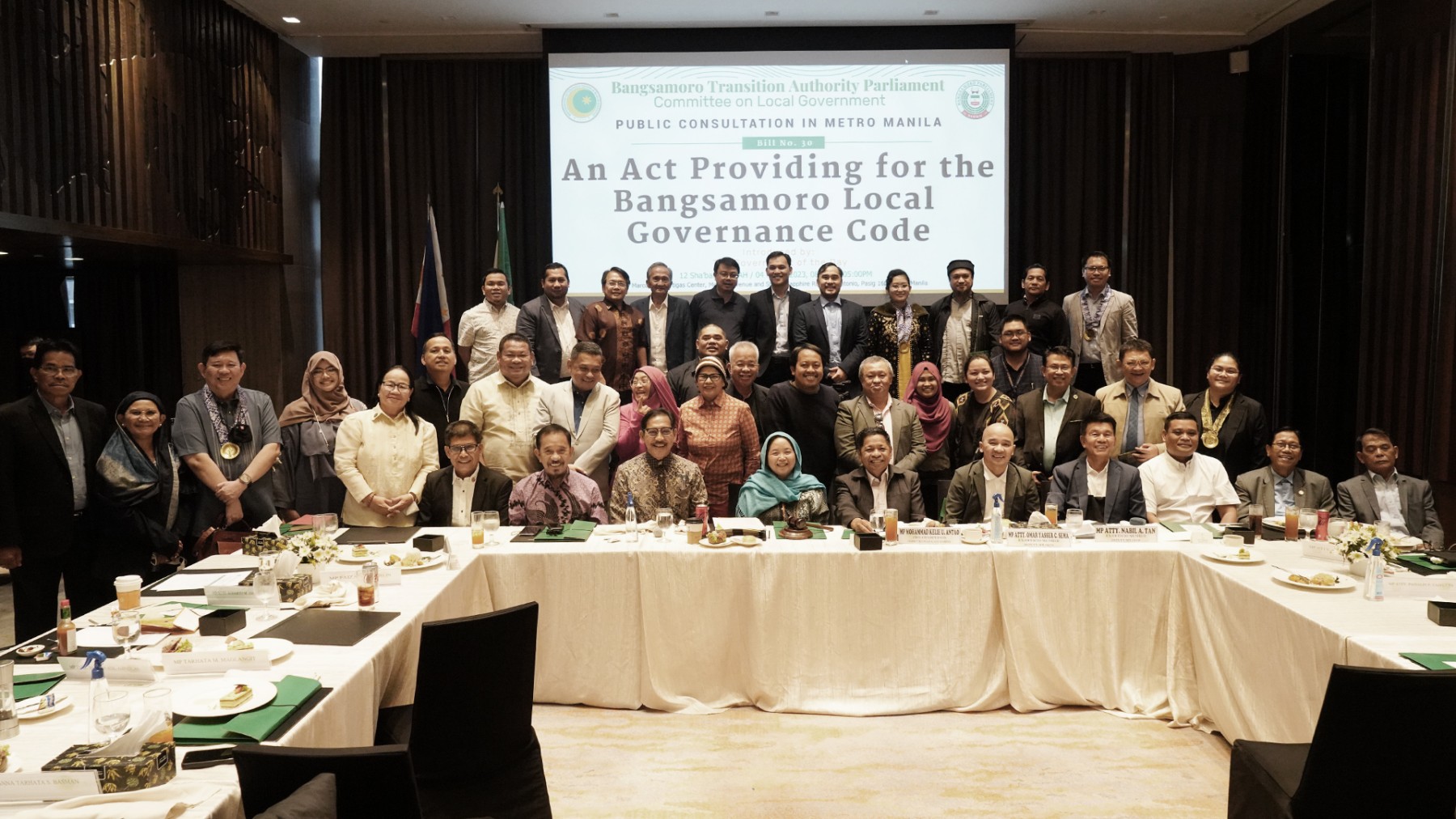MANILA – The Bangsamoro Parliament’s Committee on Local Government concluded its public consultation for the proposed Bangsamoro Local Governance Code, a measure seeking to provide a more responsive and accountable local government structure through decentralization.
Experts, local government units, nongovernment organizations, civil society groups, academic institutions, various sectors, and other stakeholders in Basilan, Sulu, Tawi-Tawi, Maguindanao, Lanao del Sur, Cotabato City, the BARMM Special Geographic Area, and Manila were consulted to gather legislative inputs and recommendations on the proposed code.
Deputy Floor Leader and CLG Chair Atty. Raissa Jajurie assured that the committee will carefully review all the feedback received from the consultation process to make sure that the final version of the code best reflects the needs and aspirations of the Bangsamoro people.
During the transition period, the Moro Islamic Liberation Front (MILF)-led interim government should enact seven priority codes, including the local governance code.
To date, the Bangsamoro Parliament has passed three of the seven priority codes, including administrative, education, and civil service codes.
The proposed local governance code contains 221 pages and is divided into four books: general provisions, local taxation and fiscal matters, local government units, and miscellaneous and final provisions.
The general provisions contain statements of policies, principles, processes, and mechanisms for effective local governance; local taxation and fiscal matters cover the taxing powers and other revenue-raising powers of the constituent LGUs; the Bangsamoro constituent units detail the structure of the constituent LGUs, powers and duties of LGUS and elective officials; and the miscellaneous and final provisions contain penal provisions, review and implementation mechanisms, and transitory provisions.
Through BTA Bill No. 30, local government units will be given more powers, authority, responsibilities, and resources in a gradual and systematic approach. It will strengthen the supervisory authority of the Bangsamoro government through the Ministry of Interior and Local Government, as well as provide clear direction between local government units and the regional government.
Territorial and political subdivisions in the region will also have genuine and meaningful local autonomy, allowing them to fully develop as self-reliant communities and become effective partners in achieving holistic Bangsamoro development.
Similar to the local government code of the Philippines, maintaining the devolution or transfer of responsibility for the delivery of various aspects of basic services to Bangsamoro constituent entities, subject to more regionally led basic services, is a core principle of the BLGC.
This proposed measure will also push for proper devolution, gradually, as led by the concerned ministries or regional offices of the Bangsamoro government.
As the Bangsamoro government pushes for moral governance, the BLGC reiterates a policy framework that encourages non-governmental, community-based, and sectoral organizations to participate in government affairs that promote the welfare of the region.
The proposed code will also trigger expenditures in the LGUs by mandating them to deliver basic services such as agriculture, health, social, and environmental.
The code applies to all constituent provinces, cities, municipalities, barangays, and other political subdivisions, as well as officials, offices, or agencies of the Bangsamoro government.
Atty. Jajurie said that the committee targets to finish the BLGC on the second quarter of the year. (LTAIS-Public Information, Publication, and Media Relations Division)

